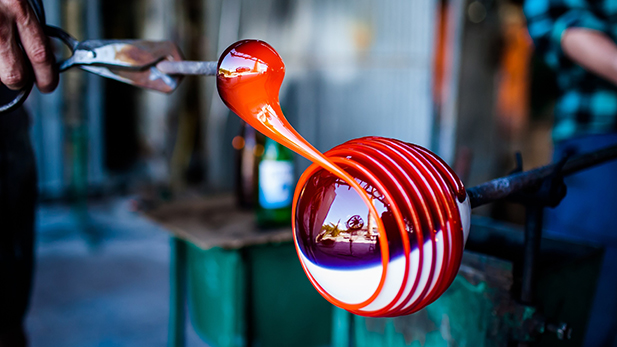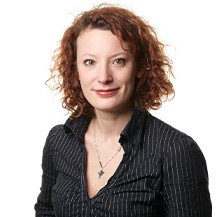Saving endangered crafts in Europe

It is possible to steer traditional crafts like glass blowing in an economically and environmentally sustainable direction previous research by Marta Gasparin has documented. She has also shown that endangered crafts can become more resilient by exchanging knowledge and culture across regions and crafts. Photo: Shutterstock
Most of us are familiar with the problem of endangered species like tigers and rhinos, which are facing extinction. Few of us, though, have heard of endangered crafts and the negative human, cultural and economic consequences if they wither and die.
Both these problems need to be tackled with equal urgency, and researchers at CBS have now set about the task within their area of expertise, namely the preservation and development of traditional craft businesses which, rooted in generations of know-how, produce goods made from materials such as wood, leather, paper, metal, stone, glass, clay and ceramic.
“Traditional crafts are vital for local economies and for maintaining diversity of culture in Europe,” says Marta Gasparin, associate professor at CBS and leader of the new, four-year HEPHAESTUS research project, financed through EUR 4 million of funding from the EU’s Horizon Europe programme.
The project, which aims to safeguard and renew traditional crafts in Europe in an economically and environmentally sustainable way, is expected to lead to a five percent increase in sales among the businesses involved. At the same time the project will define Europe on the world map as a place which builds on cultural heritage to foster the development of crafts and their authentic adaptation to change and technological advances.
Challenges facing the crafts
One of the challenges for traditional crafts such as glass blowing, weaving and pottery is that they are unfamiliar or invisible to many in the modern world, even though handcrafted products have qualities which industrialised, mass-produced goods do not always have.
Traditional craft products are typically long-lasting and therefore sustainable. They embody a regional culture that sets them apart from objects stemming from other regions, their very existence defying the notion of uniformity in our globalised world. They are an enrichment to us all, explains Gasparin.
“Earlier research, however, has shown that modern generations are somewhat distanced from traditional crafts. They do not appreciate the quality of the products, how they are made or why they are priced the way they are. This lack of familiarity poses a challenge as it means that young people have no desire to learn these crafts and that these businesses are sliding into economic difficulty in the absence of innovation and are being forced to close down,” explains Gasparin.
Negative trend must be reversed
“The traditional crafts need to adapt to survive. By doing so, they can create jobs and generate economic growth in European regions. We expect this to be one of the outcomes of this project,” adds Gasparin.
The project focuses on traditional crafts on the island of Bornholm in Denmark and in four other regions in Europe: the Faroe Islands, Dalsland in Sweden, and Venice and Bassano del Grappa in Italy.
The artisans, who will meet across disciplines and origins, will make use of FabLabs, which will provide new technology to develop novel, sustainable production methods. They will provide inspiration to the researchers, who will develop:
- new sustainable business models based on research on innovation, entrepreneurship and lifelong learning
- new ways of sharing knowledge about crafts through digital libraries and museums
- guidance for policy makers on safeguarding and developing crafts and cultural heritage so that they live up to the New European Bauhaus principles of sustainability and enrichment through culture
CBS researchers in the project Marta Gasparin, Marius Gudmand-Høyer, Lena Olaison, Rasmus Johnsen and Daniel Hjorth
Contact
Marta Gasparin
Associate Professor, Ph.D.
Tel:+45 31 77 05 83
E-mail: mga.mpp@cbs.dk
Marianne Bom
Journalist
Tel:+45 41852631
E-mail: mb.slk@cbs.dk
